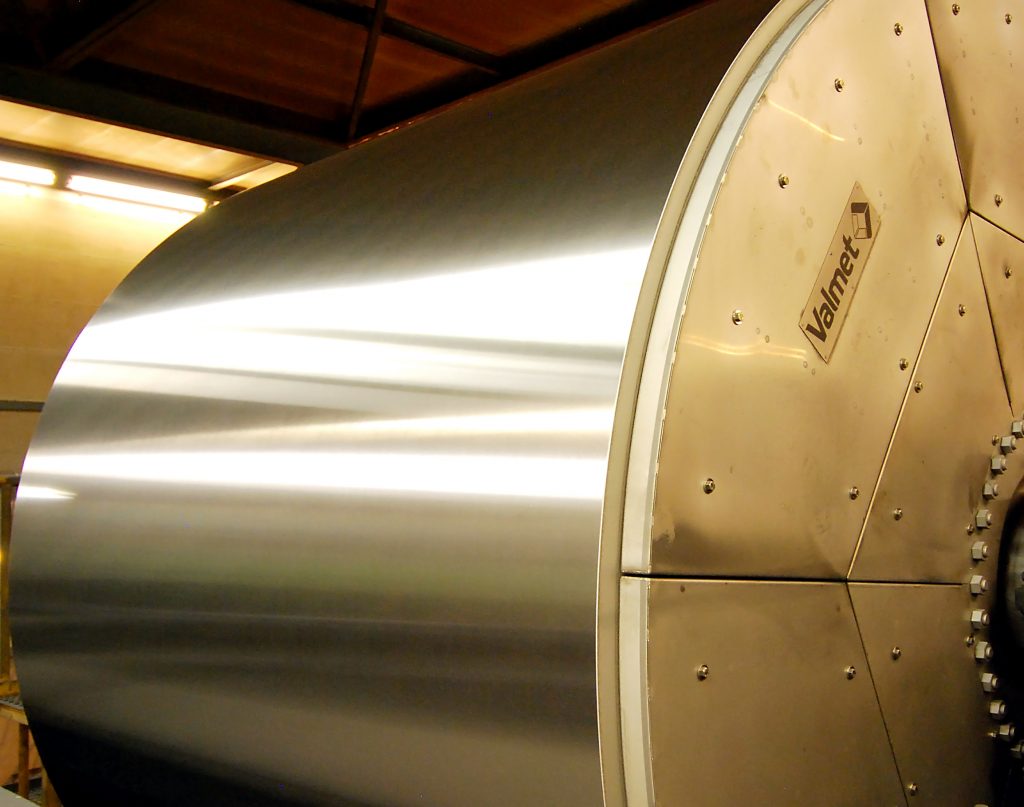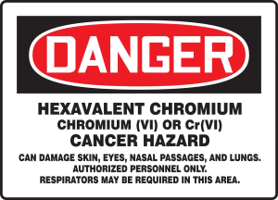..
Tissue makers generally consider the Yankee dryer to be the most important piece of equipment in a tissue machine since it serves numerous key functions simultaneously. These functions include transferring the wet web, drying it so it can carry its own weight, and working as a backing or counter-roll to the crepe blade. Essentially, it could be said that it is on the Yankee dryer, more than anywhere else, that tissue is really ‘made’.
Smooth, uniform surface that resists wear is key challenge
The surface characteristics of the Yankee are therefore extremely critical to the resulting quality of the tissue sheet produced. Difficulties can arise because the surface of the massive cylinders, made of cast iron or steel, are continuously subjected to harsh forces and enormous wear and tear. This is due to the constant pressure exerted by the crepe blade, as well other fatiguing factors such as aggressive chemicals, water in the wet tissue sheet, high surface temperatures and high internal steam pressures.
Keeping the surface in near perfect condition is therefore of utmost importance if you want to make the best tissue quality; uniformly and consistently. Over recent decades methods have been introduced that aim to protect and improve the Yankee surface to give it better performance over a longer time. The most common technology involves the application of a metalized thermal spray that lays down a superior tissue creping surface to increase the cylinder efficiency and lifetime by providing a hard and homogenous protective coating.
Ultimate protection
Thermal spraying is now seen as the ultimate treatment to protect a new steel Yankee dryer with a hard and durable surface. Also, older cast iron cylinders are today often metallized to improve performance and lifetime, particularly if there is insufficient remaining cylinder shell thickness and/or if further grinding may affect its production capabilities, like steam pressure or roll load ratings.
Risks arise with chromium
However, while there are many operational advantages provided by these metallized coatings, there are also recognized risks since potentially harmful hexavalent chromium may be created during the spray application process. Chromium is a fundamental component of almost every ferrous-based hard-facing alloy and since Yankee metallizing is often carried out on-site at the customer’s premises, the environment is difficult to precisely control.
Chrome-free Yankee thermal spray coating for safety and unparalleled reliability
To reduce potential risks associated with the thermal-spraying of ferrous-based materials, Valmet has developed new alloyed materials to eliminate chrome in Yankee metallizing. The recently-introduced Valmet Infinikote-2 Yankee Metallizing contains no chrome and therefore generates no hexavalent chrome during application, making it safe with respect to humans and the environment.
The primary performance objectives of the new chrome-free development were to remove the safety concerns that exist with chrome alloys, and to be able to apply the thermal coating with a process very similar to the current one, while of course creating a suitable surface for tissue production. The new 100% chrome-free Infinikote-2 Metallizing, Valmet says, achieves this while equaling or surpassing all current measured criteria for thermal spray coating performance. Very importantly, the coating is also positioned to comply with potential future legislation in the EU and the US, and elsewhere.
Other benefits said to be achieved include a long service life expectation through improved wear resistance; a more uniform surface for the best sheet adhesion during tissue production; a surface which is ideal for running ceramic doctor blades; and improved heat transfer properties.
 “Test results with the new material are convincing, demonstrating significantly improved application characteristics that meet or exceed all our key objectives,” says Andrew Cross, Senior Operations Manager, Global Yankee Services, Valmet. Field experience seems to confirm this.
“Test results with the new material are convincing, demonstrating significantly improved application characteristics that meet or exceed all our key objectives,” says Andrew Cross, Senior Operations Manager, Global Yankee Services, Valmet. Field experience seems to confirm this.
Good experience at Metsa Tissue in Sweden
At Metsa Tissue in Mariestad, Sweden, the mill has applied the chrome-free coating on the Yankee on PM 35. The production manager for PM 35 and PM 36 tissue machines is Jonny Blom, who explains the situation.
“Our PM 35 Yankee was close to derating and to keep up the thickness of the Yankee shell and the steam pressure rating we decided to thermal-spray the Yankee with chrome-free Infinikote-2. We have Infinikote-1 on our PM 36 and it runs without any problem. On PM 35 our targets were to achieve an even moisture profile and better runnability, as well as to have less problems with web breaks and chatter-marks.”
The experience to date, continues Jonny, is that two years after the spraying was done “we have had no problems at all with the surface, and all problems that we had earlier with chatter marks have disappeared after we sprayed. Creping efficiency has also been improved, so we could therefore speed up the reel which gives us more paper while maintaining its quality. I strongly believe that these improvements are due to the uniformity of the thermal spray coating providing a very uniform paper quality.”





Comments are closed.